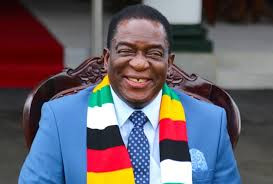
ZANU PF appears intent on extending the tenure of its leader, President Emmerson Mnangagwa, beyond the constitutionally-permissible 2028, potentially to 2030 or even further, in pursuit of its 2024 conference’s Resolution Number One.
This development raises a fundamental constitutional question: can Mnangagwa lawfully extend his term beyond 2028 without violating the supreme law of the land?
The starting point is an often-quoted principle by constitutional law lecturer Lovemore Madhuku, who reminds us that “the law is the law because it is the law” — whether one perceives it as fair or unfair, moral or immoral. It is, therefore, necessary to examine what Zimbabwe’s Constitution actually says about presidential term limits.
The 2013 Constitution is explicit on presidential tenure. Section 91(2) stipulates that a person, who has served as President for two terms, whether continuous or not, is disqualified from being elected again as President.
Furthermore, anyone who has served three or more years of a term is deemed to have completed a full term. In essence, this caps presidential tenure at two terms or a maximum of 10 years.
Mnangagwa, who assumed office in November 2017, will have completed two full terms by 2028. Extending his tenure beyond that point would, therefore, require not just significant constitutional amendments but a legal miracle.
Mnangagwa has publicly stated that he will not extend his stay in office and intends to step down at the end of his term as Zanu PF prepares for succession at its congress in 2027. Yet, behind-the-scenes manoeuvers continue to suggest that elements within the ruling party remain keen on prolonging his rule.
If Zanu PF were to pursue a formal extension of the presidential term, it would have to follow a rigorous constitutional amendment process:
- ED’s influence will take generations to erase
- ‘Govt spineless on wetland land barons’
- Govt under attack over banks lending ban
- Zim Constitution must be amended
Keep Reading
l A Bill amending Sections 91 and 328(7) of the constitution would need to be published in the Government Gazette for at least 90 days;
l Parliament would have conduct public consultations, inviting written and oral submissions;
l The Bill would have to be passed by two-thirds majority at its final readings in both the National Assembly and the Senate; and
l Within three months, the Bill would have to be put to a referendum and passed by a majority of the voters who cast their votes.
Even if all these hurdles were overcome, Mnangagwa himself could not benefit from such an amendment.
Section 328(7) of the constitution deliberately prevents the incumbent from benefiting from any extension of term limits introduced during their tenure.
As Veritas Zimbabwe notes, term limits serve as an essential democratic check on executive power, a principle dating back to ancient Rome. When leaders know their tenure is finite, they are more likely to govern with restraint and respect for both allies and adversaries.
Some have suggested a workaround: delaying elections rather than extending terms, thereby extending the life of parliament and, by extension, the presidency.
However, this is constitutionally untenable. Section 158 mandates that elections for both the President and Parliament be held every five years. Parliament can dissolve itself early, triggering elections sooner, but it cannot legally postpone them.
Any attempt to do so would be unconstitutional and would almost certainly provoke legal challenges and public resistance.
Given that the constitution is explicit regarding this extension, there are potential avenues that could be explored, albeit controversially.
These include changing the interpretation of terms; some politicians might argue for a reinterpretation of what constitutes a “term” or advocate for a new legal framework that could indirectly allow for an extension.
However, such moves would likely face significant legal challenges and public opposition.
The question of extending tenure for incumbents was decisively addressed in Musa Kika versus Minister of Justice, where the High Court struck down the extension of Chief Justice Luke Malaba’s term of office.
The Court held that any constitutional amendment extending a term must undergo the entrenched processes outlined in Section 328, including a referendum.
It emphasised that while parliament may alter term limits in general, it cannot extend the term of a sitting officeholder without following those rigorous procedures. Section 328 remains firmly in place and continues to safeguard against self-serving amendments. Of course, constitutionalism in Zimbabwe has often been tested by political expediency.
As Madhuku once observed, Zanu PF has historically operated under what he called the Mugabe theory of constitutional law: “If the law stands in your way, change the law — it can’t stand in your way.”
It would therefore not be surprising if similar tactics are attempted again.
Unless Section 328 is itself repealed or radically altered, a process requiring overwhelming parliamentary and public support, Mnangagwa’s term cannot be legally extended beyond 2028.
Nonetheless, 2026 and 2027 promise to be defining years for Zimbabwe’s constitutional order. The outcome will test the resilience of our institutions, the integrity of Parliament, the independence of the courts and ultimately, the will of “we, the people”.
While Zanu PF may wish to perpetuate Mnangagwa’s rule, the constitution’s safeguards remain formidable.
History shows that tampering with term limits often triggers public backlash and judicial scrutiny. In the end, the supremacy of the constitution, not political convenience, must prevail if Zimbabwe is to remain a constitutional democracy.
Ultimately, the will of the people and adherence to constitutional democracy will play a crucial role in determining the future of leadership in Zimbabwe.
Mhlanga is a student of law at the University of Zimbabwe. — [email protected].











